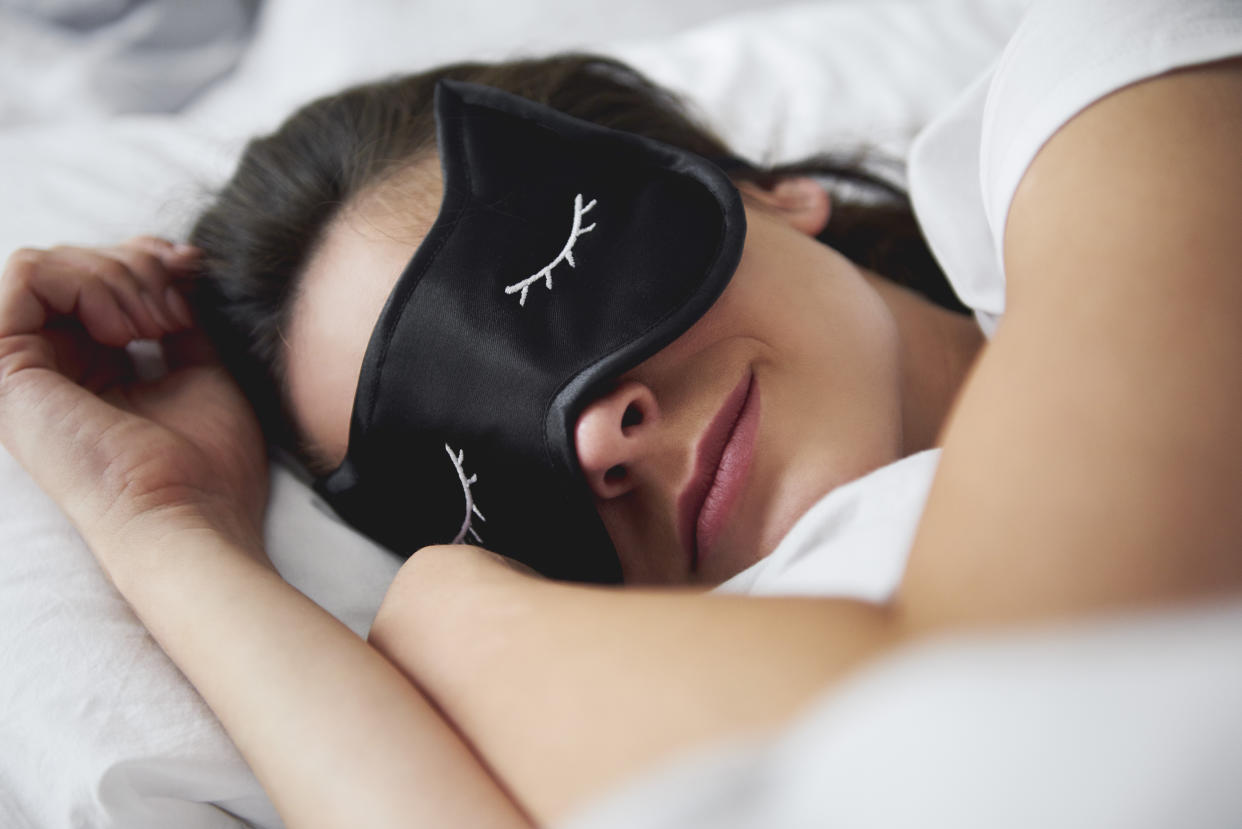Sleep may ward off heart disease - even in those genetically at risk

Sleeping well could ward off heart disease, even in those who are genetically at risk, research suggests.
Scientists from Tulane University in New Orleans looked at the DNA of more than 385,000 healthy people.
READ MORE: Adding chilli to your meals could ward off an early death
They also rated the quality of the participants’ sleep, including the number of hours per night, any daytime fatigue and snoring.
Over the next eight years, those who slept best were up to 35% less likely to suffer heart disease.
The scientists even found a good night’s kip could offset DNA that raises the risk of chest pain, heart attacks and strokes.
Heart disease is responsible for a quarter of all deaths in the UK and US, statistics show.
Obesity, smoking and inactivity are all recognised causes. There may also be a genetic element, with the risk increasing if a family member has suffered.
READ MORE: Lack of sleep may explain why poor people are more at risk of heart disease
Little was known about the link between a patient’s DNA and sleeping habits on their heart health. To learn more, the scientists analysed blood samples from participants of the UK Biobank study.
The same participants were also given a “healthy sleep score” of 0-to-5. A score of five indicated a “morning” person who slept between seven and eight hours a night, without insomnia, snoring or daytime fatigue.
“We wanted to test whether the relation between sleep scores and cardiovascular outcomes was different according to the genetic risk,” lead author Professor Lu Qi said. “This is the first time this has been done.
“We also wanted to estimate the proportion of cardiovascular problems that would not have occurred if all participants had a healthy sleep pattern, if we assume there is a causal relationship.”
Results, published in the European Heart Journal, show those with a sleep score of five were 35% less likely to develop cardiovascular disease of any kind. This is a general term for conditions affecting the heart or blood vessels, according to the NHS.
They were also 34% less at risk of a heart attack or stroke, specifically.
“If the link between sleep and cardiovascular disease proves to be causal, then more than a tenth of all heart disease and strokes would not have occurred if all the participants had a healthy sleep score of five,” Professor Qi said.
“Among people with a healthy sleep score of five, there were nearly seven fewer cases of cardiovascular disease per 1,000 people per year compared to those with a sleep score of less than five.”
The results also reveal having both a high genetic risk for cardiovascular conditions and a poor sleep score raised the risk of heart disease by 2.5 times, while the odds of stroke went up 1.5 fold. This is compared to good sleepers with a low genetic risk.
READ MORE: Blood pressure pills 'work better when taken at bedtime'
Among those with healthy sleeping habits and a high genetic risk, the odds of heart disease and stroke were 2.1 and 1.3 times higher, respectively.
“We found a high genetic risk could be partly offset by a healthy sleep pattern,” Professor Qi said.
“In addition, we found people with a low genetic risk could lose this inherent protection if they had a poor sleep pattern.”
Having a low DNA risk alongside an unhealthy sleep pattern raised the risk of heart disease and stroke by 1.7 and 1.6 times, respectively, compared to those who slumber well and have good genetic odds.
The results remained true after adjusting for smoking, alcohol consumption, BMI, age, activity levels and other health factors.
“As with other findings from observational studies, our results indicate an association not a causal relation,” Professor Qi said.
“However, these findings may motivate other investigations and, at least, suggest it is essential to consider overall sleep behaviours when considering a person's risk of heart disease or stroke.”
Other experts were quick to point out the participants’ sleep habits were self reported and undetected health concerns may also affect our ability to nod off.
“Overall, the study adds weight to the importance of lifestyle choices in maintaining cardiovascular health and suggests that a good night’s sleep may be beneficial alongside regular exercise and a healthy diet,” Professor Paul Evans, from the University of Sheffield, said.


